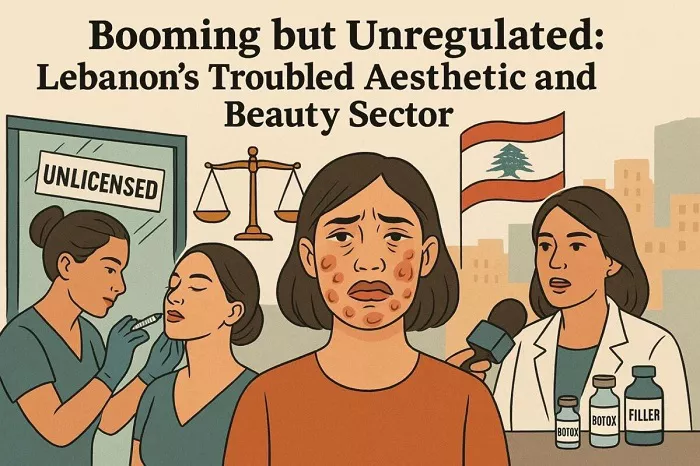The aesthetic and beauty industry in Lebanon is facing a troubling and chaotic situation that endangers clients’ health and safety. Many individuals performing cosmetic procedures today lack the necessary qualifications, training, and certification required to ensure safe and effective treatments. In what seems like a regulatory void, unauthorized workshops and training sessions are being held with little to no oversight, often violating the law.
Rita Matar, a qualified aesthetic specialist trained in London with extensive experience in Lebanese clinics, sheds light on the situation. She explains that individuals with no formal medical education are receiving informal, short-term training courses that have no legal standing. “These short courses are often run by beauty salon owners specializing in nails or makeup. After completing these courses, the individuals present themselves as beauty experts and start offering procedures like Botox and fillers,” Rita shared.
The lack of proper education, oversight, and regulation has led to an increase in botched cosmetic procedures, causing serious health risks for clients. The root cause of this issue appears to be a focus on profit over safety, with little regulation to enforce standards.
Lebanese law stipulates that only medical professionals—such as specialists in aesthetic medicine, dermatology, plastic surgery, ENT surgery, or maxillofacial surgery—are eligible to run a licensed cosmetic clinic. Furthermore, to obtain this license, the clinic must first receive approval from the Ministry of Public Health, with a recommendation from the ministry’s Director General.
However, despite these legal requirements, many beauty salons and clinics are operating without proper licenses, creating a dangerous and unregulated market. This lack of enforcement of the law continues to jeopardize the health and safety of individuals seeking cosmetic procedures in Lebanon.
Related topics:


